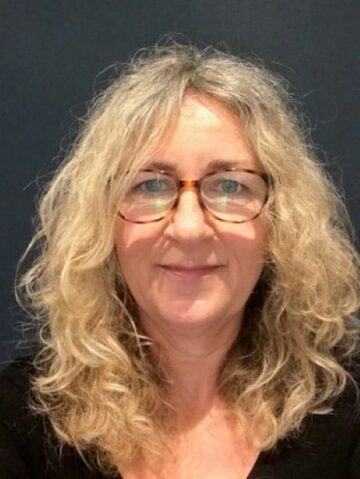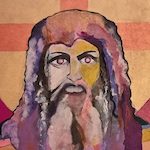I started looking for God when I was a child. Aged 11, I wrote in a diary, ‘Who is God and where is he?’ I don’t know where this impulse came from. Both my parents were atheists so maybe these questions were triggered inside me when I was sent to an overtly Christian school. Whatever the prompt, my search was serious and amongst other places, I took myself to the local C of E church looking for answers. I don’t remember finding anything transformative there, but later, as a teenager, I stumbled onto what Bishop Holloway has recently described as the counter-cultural portal to the mystical state[1].

Along with most young people around me at the time, I loved getting high. For me, this took the form of smoking hash and, when the local environs provided (we searched every Autumn) taking magic mushrooms. I loved the sensations these caused, but mostly I loved the way my mind opened and could find new meanings – in song lyrics, in paintings, in everything I felt and saw. And during that time, I met a lot of people who like me, were searching, if not for God, then for experiences beyond the known.
So initially I encountered the divine realm through psychedelic drugs. Sometimes it was in direct ways, like being raised by something outside me (yet somehow also within me) into a living dimension beyond the physical world. Other times it was in indirect ways, like seeing the light from a jewel in a far distant crown reflected in a thousand cracked mirrors suspended through space. The light contained truth but the route it had travelled from its source was unfathomable to me.
Looking back, I don’t think it’s surprising that I encountered God in this way. Two decades before me, many others had done the same thing. Jimi Hendrix bore stunning testimony to his divine experiences and even Eric Burdon of the Animals claimed to have found himself sitting next to Christ on an acid trip. And these children of the revolution were not without their precursors decades, even centuries, before. But as Joan Didion recognised even during the sixties, ‘[a]nybody who thinks this is all about drugs has his head in a bag.’ In her collection of essays Slouching Towards Bethlehem, she quotes a psychiatrist who describes the psychedelic movement as quintessentially romantic:
‘The themes are always the same. A return to innocence. The invocation of an earlier authority and control. The mysteries of the blood. An itch for the transcendental, for purification.’
All this resonates deeply with me. And yet I also recognise the inevitable failure and decline predicted by the same psychiatrist. The paragraph continues,
‘Right there you’ve got the ways that romanticism historically ends up in trouble, lends itself to authoritarianism. When the direction appears. How long do you think it’ll take for that to happen?’[2]
The psychedelic dream may not have survived human frailty and the crushing realities of capitalism, but for me and others like me, it did help to open a portal into the divine realm. Had it only been about the drugs, my enthusiasm would not have lasted long. But for many years I was part of a community of people who sought to deepen and expand their knowledge of God. That community fragmented over time but its legacy lives on in many different ways. And, as anyone who has encountered Christ will know, there is a standing invitation to enter into heaven.
But it is not an invitation that is easy to accept. Metropolitan Anthony of Sourozh, an orthodox archbishop who died in 2003, said,
‘[A] Christian is like someone who lives in three dimensions in a world in which the majority of people live in two. People who live freely and within a dimension of eternity will always find that something is wrong, they will always find themselves being the odd man out.’[3]
Perhaps it is easier to live in ignorance of the divine? Anthony would question whether that is life at all. He wrote of the knowledge we must find or die, concluding, like so many before him, ‘if we turn to God we discover that life is deep, vast and immensely worth living.’[4]
[1] Stories We Tell Ourselves, Richard Holloway, Canongate, 2020, p. 121
[2] Slouching Towards Bethlehem, Joan Didion, Farrar, Straus and Giroux, 1968, p. 127, quoted in Stories we Tell Ourselves, Richard Holloway, Canongate, 2020, p. 105
[3] Beginning to Pray, Archbishop Anthony Bloom, Paulist Press, 1970, p. 18
[4] Beginning to Pray, Archbishop Anthony Bloom, Paulist Press, 1970, p. 13
